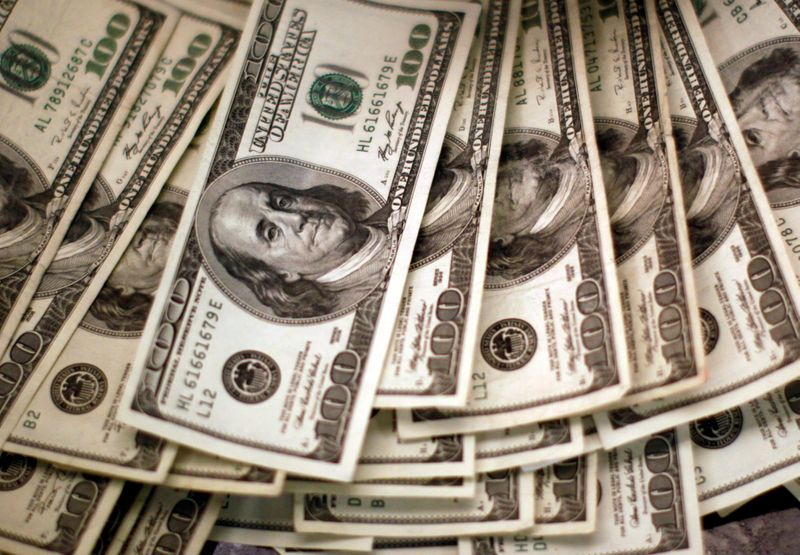Dollar on backfoot ahead of U.S. jobs data By Reuters

By Hideyuki Sano
TOKYO (Reuters) – The dollar stayed under modest pressure on Friday ahead of a key U.S. jobs report that could cement expectations of a strong economic recovery and fan investor appetite for stocks, higher-yielding currencies and commodities.
The dollar’s index against six other major currencies stood near its lowest level so far this week, at 90.868, having lost about 0.4% overnight.
As the dollar is softer against most currencies, the euro outshone many others, having gained 0.5% on Thursday to trade at $1.2063.
Against the yen, the dollar dipped to 109.05 yen, almost flat so far on the week as its rebound since late April has lost steam.
U.S. payrolls data due at 1230 GMT will likely confirm the economy’s solid path to recovery from the pandemic, analysts said. Economists expect 978,000 new U.S. jobs for April, according to a Reuters poll.
Ahead of the closely-watched report, data showed on Thursday the number of Americans filing new claims for unemployment benefits fell below 500,000 last week for the first since the COVID-19 pandemic started more than a year ago.
Although signs of a strong job recovery could stoke inflation worries, so far most Federal Reserve policymakers have downplayed the risks of higher prices, a sign stimulus tapering will not be on agenda any time soon.
“Markets are convinced that the Fed won’t make actions until the U.S. will see a full employment. That means positive environment for risk assets such as stocks,” said Bart Wakabayashi, Tokyo Branch Manager of State Street (NYSE:STT).
“I often hear people say they are fine with the idea of selling the dollar. The question is becoming, what you should buy against the dollar?”
The Canadian dollar rose almost 1% overnight to a 3-1/2-year high of C$1.21455 and last stood at C$1.2157.
The currency has been bolstered by oil price gains and the Bank of Canada’s recent shift to more hawkish guidance.
The Chinese yuan also held firm near a two-month high, standing at 6.4655 per dollar in offshore trade, just short of its April 30 peak of 6.4613.
The British pound traded at $1.3896, unable to hold on to gains made on Thursday after the Bank of England slowed the pace of its trillion dollar bond-purchasing programme.
The decision was largely expected and the BoE stressed it was not reversing its stimulus.
The British currency could be capped for now by uncertainties over Scottish election that could trigger a showdown with British Prime Minister Boris Johnson over its independence movement.
Although the polls already closed at 2100 GMT, votes will not be counted until Friday morning due to the coronavirus pandemic.
Just over a third of the results will be announced on Friday and the remainder will be announced on Saturday.
Elsewhere, ether hit a fresh record high of $3,610.04 and last traded at $3,473.51.
Bitcoin fetched $56,541, trapped in a range between $53,000 and $59,000 over the past week.

